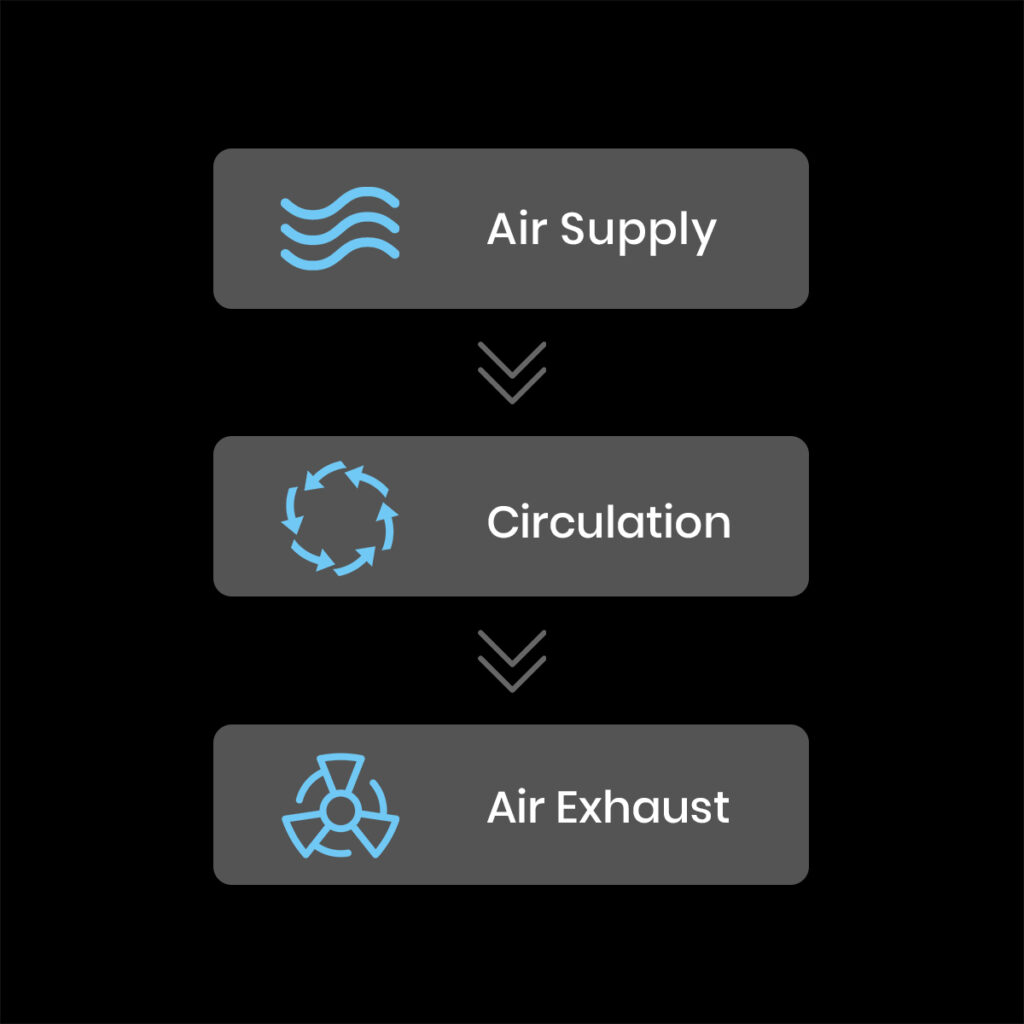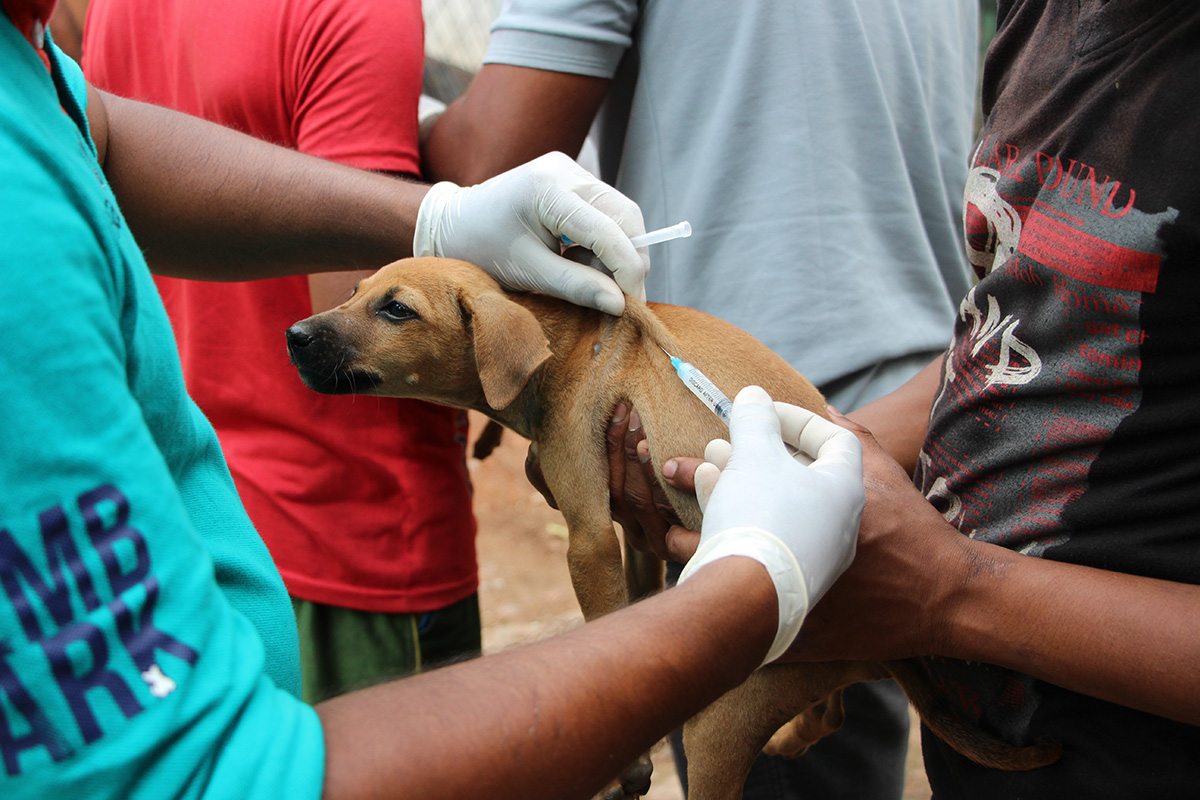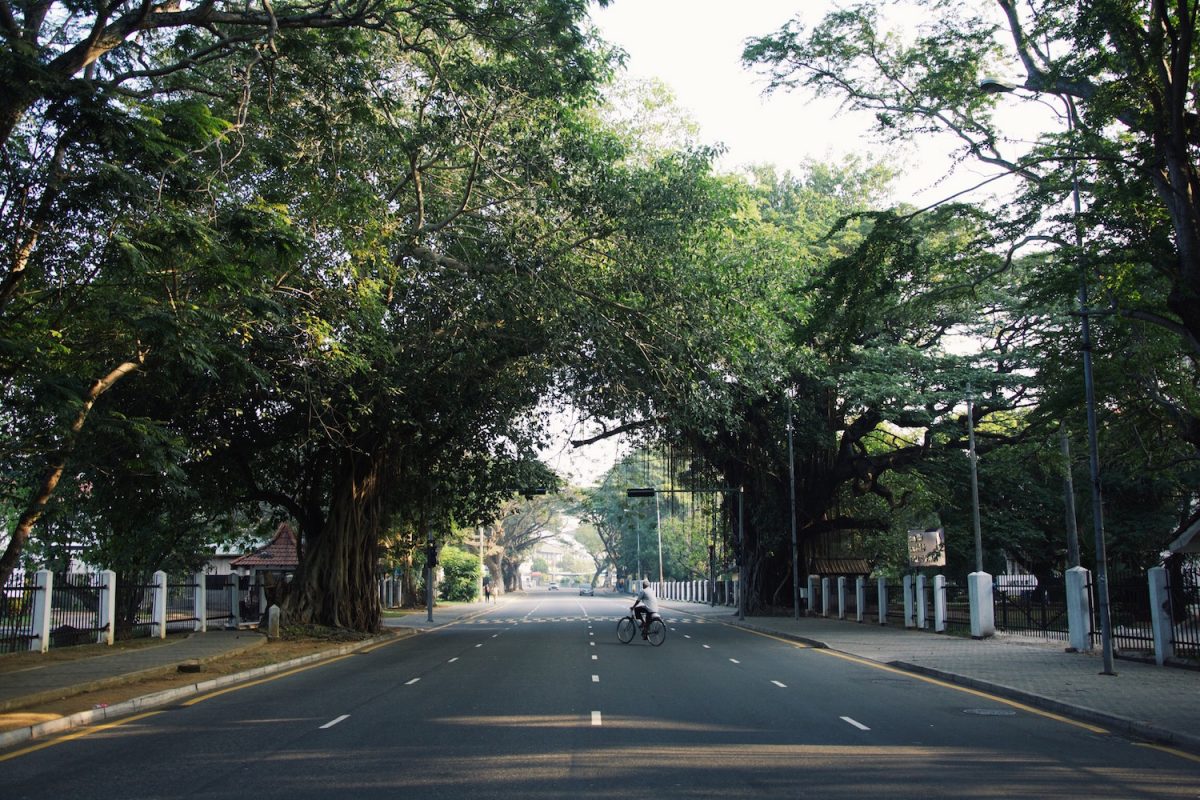
Which of your most basic needs do you worry about fulfilling most? For most people, it’s food, water, and a roof over their head — and they’re not wrong. But few, if any, prioritise clean, breathable air the same way, and it shows.
In December 2022, Sri Lanka experienced a sudden drop in air quality levels. Around the country, a visible smog had developed. The Air Quality Index (AQI) across many Sri Lankan cities was found to be between 150 and 200 — unanimously considered an unhealthy level. As Sri Lankans resorted to face masks and indoor gatherings, we posed another question: how healthy is the air we breathe indoors?
Most people are well-versed in the impacts of outdoor air pollution, but how many consider how the quality of the air indoors affects us? Most of our time is spent within buildings — be it our homes, offices, or schools — rather than in open-air spaces. So let’s talk about it.
Firstly, what’s IAQ?

Image Credit: Branch Environmental
IAQ refers to the quality of air inside and around dwellings. The AQI, meanwhile, plays a significant role in determining what is ‘good’ and ‘bad’ air quality. It involves assigning a value ranging from good (0-50) to hazardous (301-500). The higher the value, the more concerning the health impacts of poor-quality air.
Poor IAQ starts with poor ventilation. When a room is closed off, trapping the air inside it, oxygen drops and CO2 rises. Humidity inside the room also rises beyond healthy levels (40% – 60%), forming dew condensation on walls, window glass, and inside closets. This leads to a range of pollutants from numerous sources, such as allergens, black mould, asbestos, carbon monoxide, and Volatile Organic Compounds (VOCs) such as formaldehyde.
This stuff isn’t just gross. It can also trigger health issues such as dust allergies, headaches, nasal congestion, nausea, fatigue, and a decline in memory and focus. In more serious cases, poor IAQ can lead to carbon monoxide poisoning.
How is poor IAQ affecting Sri Lanka?
This is a vital conversation to have, especially considering Sri Lanka’s clear lack of awareness on what poor Indoor Air Quality (IAQ) entails. While countries like Japan have been prioritising IAQ for decades, Sri Lanka is far behind.
Many Sri Lankan households unknowingly struggle with poor IAQ, primarily caused by emissions from stoves and other appliances. Other culprits include the use of pesticides, the burning of wood, animal waste products, construction materials, and more.
But, Sri Lanka’s poor IAQ isn’t just unique to homes. Schools and offices also grapple with inefficient ventilation and the absence of air quality monitoring systems. This poses additional risks, especially when considering biological contaminants, such as bacteria and viruses, dust mites, pollen and more.
Improving ventilation in homes can reduce the spread of airborne diseases as well.
How can we improve the quality of the air we breathe?

Maintaining good IAQ involves a steady balance of air exhaust and air supply, the induction of fresh air, the elimination of heat and humidity, and ensuring a reliable supply of oxygen. But it’s not nearly as complicated as it sounds.
There are two ways to ensure good IAQ. One is natural ventilation, which relies on outside air pressure to circulate fresh air through an interior space with no excessive noise or maintenance, and virtually no cost. This was especially common in old, traditional buildings. However, with the costs and restrictions of urbanisation, natural ventilation isn’t an easy option anymore.
So, what’s the alternative? Mechanical ventilation could be the answer. For example, a tall house would require a high static pressure type exhaust fan, such as a sirocco or turbo fan, to adequately circulate the air through it. Smaller spaces require less, which makes mechanical ventilation a convenient and affordable way to maintain good IAQ.
Architecture plays a crucial role here as well, as it can determine how much fresh air can flow through and how much polluted air gets trapped within. A house that is almost completely airtight would require a 24-hour ventilation plan that maintains a consistent air flow through all its spaces.
The Lowdown
The air we breathe matters. Better air quality keeps us healthier, and even reduces the burden on our strained healthcare system. But, Sri Lanka has a lot of ground left to cover. From increasing awareness on IAQ to implementing monitoring systems, concrete change is needed. The way we design the buildings we dwell in and the means we use to ventilate them play a crucial role here.
Sri Lanka’s outdoor air quality may have improved since December of 2022, but reports indicate that the outdoor air quality may further deteriorate in the coming year – making the air outside particularly unsafe for sensitive groups. Further drops may affect the general population as well.
So, as we keep a sharp eye on our outdoor air quality, let’s also remember our IAQ. With awareness, Sri Lankans can make sure the air we breathe inside is safer without much hassle or cost, safeguarding our health in the long run.








